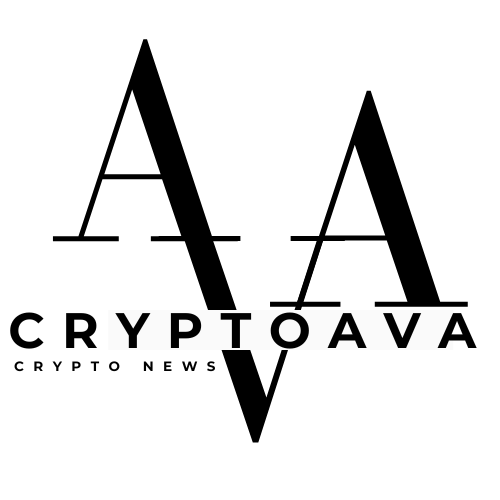Key takeaways
-
Privateness tokens, equivalent to Zcash, have posted positive aspects, whereas the general crypto market cap and Bitcoin have dropped sharply.
-
The rally is going on in opposition to a tightening coverage backdrop with FATF stress, new EU AML guidelines and a rising checklist of privateness coin delistings.
-
Sanctions circumstances and prosecutions involving mixers and wallets have raised questions in regards to the line between infrastructure and cash transmission, pushing compliance groups towards cautious de-risking.
-
Analysts are break up between seeing the transfer as a protest commerce in opposition to surveillance and a fragile late-cycle spike in a shrinking high-risk nook of the market.
Over the previous six weeks, the crypto market has shed greater than $1 trillion as merchants rotate out of speculative property. Whole market capitalization has fallen from peaks above $4.3 trillion in early October to only over $3.1 trillion, a drawdown of about 25%-28%.
Bitcoin is down near 30% from its early October all-time excessive above $126,000 and is now buying and selling within the low $90,000s.
Towards that backdrop, one of many strongest pockets of efficiency can be essentially the most unstable class: privateness tokens. Zcash (ZEC) has rallied a number of hundred % since late summer season, with its market capitalization rising from beneath $1 billion in August to a peak above $7 billion in early November. It briefly overtook Monero (XMR) as the most important privateness coin by worth.
On the identical time, Zcash has surged to the highest of Coinbase’s inside search rankings, surpassing Bitcoin (BTC) and XRP (XRP) in person queries, an indication that retail consideration has adopted the transfer.
Analysts say the mix of sharp positive aspects and rising search curiosity seems like a basic scorching commerce. The complicating issue is that it’s taking place in part of the market dealing with mounting regulatory stress, alternate delistings and sanctions-related scrutiny.
Do you know? Most soiled crypto doesn’t transfer by way of privateness cash. Chainalysis’s 2025 crime report says stablecoins made up about 63% of all crypto transaction quantity linked to illicit exercise in 2024, having already overtaken Bitcoin as the popular crypto for a lot of felony actors.
Privateness tokens as outliers: The numbers and narratives
The most recent transfer has clearly been led by Zcash, with Monero following at a distance.
Key numbers analysts level to:
-
ZEC is up nicely over 200% in a few month on some main venues.
-
From late summer season lows, point-to-point strikes in ZEC attain excessive triple-digit share positive aspects.
-
Monero has risen, too, however far much less, permitting ZEC to briefly overtake it by market capitalization.
-
Regardless of the rally, ZEC nonetheless trades nicely under its historic all-time excessive.
Explanations fall into two broad camps:
-
One group focuses on construction and tech, together with declining issuance as halvings progress and the deliberate NU6.1 improve, which shifts extra funding management towards tokenholders.
-
One other factors to narrative and market construction, together with extremely optimistic public worth projections, concern about surveillance, skinny order books and brief squeezes in a comparatively small section of the market.
Most observers agree the rally is unfolding simply because the regulatory and coverage tide turns in opposition to anonymity-enhancing property.
Do you know? Even after the latest rally, the complete privateness coin sector is price about $30 billion-$35 billion, or roughly 1% of the full crypto market cap, in accordance with CoinGecko class information.
Regulation is shifting the opposite approach
On the world stage, privateness tokens sit squarely contained in the Anti-Cash Laundering (AML) debate.
Since 2019, the Monetary Motion Job Power (FATF) has utilized its full AML and counter-terrorism-financing (CFT) requirements to digital property and digital asset service suppliers (VASPs), together with the Journey Rule, which requires originator and beneficiary info to accompany qualifying transfers.
A focused replace in 2024 discovered that about three-quarters of assessed jurisdictions had been nonetheless solely partially or non-compliant with Advice 15, and about 30% had not but carried out the Journey Rule in legislation. The FATF additionally flagged rising use of anonymity-enhancing cryptocurrencies by illicit actors as a particular concern.
In Europe, the route of journey is even clearer. New EU-wide AML guidelines centered on Regulation 2024/1624 and associated laws will ban nameless crypto accounts and privateness cash on licensed platforms by 2027, in accordance with authorized and coverage analyses.
Crypto asset service suppliers shall be required to use bank-style AML controls, confirm the useful house owners behind wallets that work together with their providers and part out assist for totally nameless devices.
That doesn’t imply these property develop into unlawful to carry all over the place. Nevertheless it does imply that in a lot of the regulated monetary system, infrastructure is being redesigned on the idea that privateness tokens shall be restricted or excluded.
Delistings, shrinking venues and liquidity threat
The regulatory backdrop has already began to reshape the place and the way privateness tokens commerce.
Key shifts:
-
In 2024, privateness tokens noticed practically 60 delistings from centralized exchanges, the best determine since 2021.
-
Monero accounted for the most important share of removals, with Sprint (DASH) and others additionally affected as exchanges revisited AML insurance policies.
-
Binance has restricted or eliminated buying and selling in XMR, ZEC and DASH for customers in a number of European jurisdictions, citing native guidelines and compliance.
-
Kraken introduced in late 2024 that it will halt Monero buying and selling and deposits for shoppers within the European Financial Space (EEA), with a withdrawal deadline at year-end and a transparent reference to European Union regulatory modifications, together with the Markets in Crypto Belongings (MiCA) framework.
These steps could create a basic liquidity dilemma. Skinny markets can transfer sharply on comparatively small inflows throughout rallies. As buying and selling migrates from massive, well-capitalized venues to smaller or much less regulated platforms, it may well develop into tougher for greater holders to exit with out shifting the worth. The identical construction that permits sudden spikes can even enhance the danger of air pockets on the way in which down.
Do you know? Some international locations banned buying and selling privateness cash years in the past. Japan’s regulator pushed exchanges to drop Monero, Sprint and Zcash in 2018, whereas South Korea banned privateness cash from home exchanges beginning in March 2021, forcing native platforms to delist them totally.
Sanctions spillover, courtroom battles and compliance nervousness
Sanctions and enforcement actions have added one other layer of uncertainty.
In 2022, america Treasury’s Workplace of International Belongings Management (OFAC) sanctioned Twister Money, alleging that the Ethereum-based mixer laundered billions of {dollars}, together with funds linked to North Korea. In late 2024, a US appellate courtroom discovered that sanctioning immutable sensible contracts exceeded the Treasury’s authority, and in March 2025, the OFAC formally withdrew the designations.
Nevertheless, the authorized threat didn’t disappear. Twister Money builders have confronted felony proceedings in a number of jurisdictions, and one co-founder has been convicted on prices tied to working an unlicensed cash transmitting enterprise.
A separate case involving Samourai Pockets despatched an identical sign. In November 2025, its founders acquired multi-year jail sentences in america after pleading responsible to conspiring to function an unlicensed cash transmitting enterprise, with prosecutors alleging that greater than $2 billion in Bitcoin flowed by way of the service.
For compliance groups, the road between infrastructure and cash transmitter is difficult to attract. A number of AML distributors and coverage teams now place privateness cash, mixers and a few high-risk decentralized finance (DeFi) instruments in the identical elevated threat band. Underneath stress from the FATF and nationwide regulators, many corporations default to over-compliance by blocking deposits linked to privateness instruments, declining listings and limiting fee use.
For customers, this creates a secondary threat. Even when a particular coin or protocol shouldn’t be sanctioned, the encircling ecosystem should deal with it as too dangerous to the touch.
What analysts are watching subsequent
Analysts are divided on what this rally truly indicators:
-
Some see it as a protest commerce in opposition to rising onchain surveillance, data-sharing guidelines and sanctions screening.
-
Others view it as a late-cycle speculative spike in a shrinking area of interest, pushed extra by leverage and narratives than long-term demand.
Key milestones on the coverage aspect:
-
EU AML guidelines that limit or successfully ban privateness cash on licensed platforms are set to take full impact round 2027.
-
The FATF will proceed publishing implementation critiques, and its newest studies say most jurisdictions are nonetheless solely partially compliant with digital asset requirements and the Journey Rule.
On the technical aspect, upgrades like Zcash’s NU6.1 funding change and experiments with elective privateness layers on main networks could take a look at whether or not stronger privateness can coexist with regulators’ calls for for traceability.
For now, privateness tokens sit between a long-running debate over monetary privateness and an intensifying world AML and sanctions regime. Consciousness of authorized, liquidity and enforcement dangers is important for understanding how this section operates.


